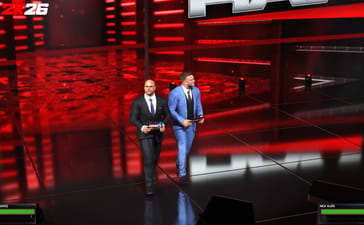Online gaming is no longer just about blowing off steam after work or zoning out for a few hours on a Saturday night. It’s now a high-performance arena where skill, speed, and precision determine who rises and who respawns. Competitive gaming has exploded into one of the biggest cultural forces of the last decade – and it’s only getting bigger.
From local LAN tournaments in dusty PC cafés to global esports events selling out stadiums and streaming to millions on Twitch, the evolution of online gaming is impossible to ignore. What was once dismissed as a subcultural sideshow has become a legitimate entertainment empire, one that rivals the music and film industries in reach, revenue, and relevance.
And at the core of this meteoric rise? Competition.
The Rise of the Digital Gladiator
The concept of competing in video games isn’t new. Anyone who’s fought over high scores on an arcade machine or trash-talked through a split-screen GoldenEye session knows that victory has always been the name of the game. But today’s competitive gaming looks very different.
Now, players train like athletes. They scrim, they study strategy, they hire coaches. Entire careers are being built not just in playing, but in streaming, casting, managing, and designing competitive gaming experiences. From League of Legends to Valorant, Counterstrike to Rocket League, the stakes are sky-high – and the rewards are real.
What’s changed is the infrastructure. Fast internet, powerful hardware, and global platforms like Discord, Twitch, and YouTube have transformed solitary gamers into members of a global ecosystem. It’s no longer just about beating the game; it’s about beating everyone else playing it.
Why We’re Wired for Competition
So why are we so drawn to competitive gaming?
For one, it offers instant feedback. You either win or you lose. You climb the ladder or fall down it. There’s no middle ground – and in a world full of ambiguity and grey areas, that clarity is magnetic. Whether you’re a casual weekend warrior or a semi-pro grinding for sponsorships, the thrill of testing your reflexes and strategy against real people is unmatched.
There’s also the social dimension. Online play isn’t just about the game; it’s about the community that surrounds it. Rivalries, friendships, and alliances are forged in voice chats and message boards. The shared pursuit of mastery creates a sense of belonging that’s hard to replicate elsewhere.
This is why games with ranked modes, tournament ladders, and performance-based rewards thrive. Players don’t just want fun – they want meaning. They want their skills to count for something.
Expanding the Battlefield
The hunger for high-stakes gameplay isn’t limited to traditional esports titles anymore. We’re seeing the mechanics and culture of competitive gaming bleed into unexpected genres.
Take battle royales, for instance. Fortnite, Apex Legends, and Warzone all fuse the unpredictability of survival gameplay with the intense pressure of last-man-standing rules. Every match feels like a tournament. Every win feels like a trophy.
Even rhythm games like Beat Saber, puzzle battlers like Tetris 99, and mobile games like Clash Royale have incorporated competitive elements. Leaderboards, ranked matchmaking, and real-time duels are now expected features in any serious release.
It’s all about pressure. If a game doesn’t offer some kind of measurable challenge, players are moving on.
Where Strategy Meets Risk
Another interesting shift we’re seeing is a renewed interest in strategy-based games—especially those that combine logic, luck, and skill. Think online chess, deck-builders like Slay the Spire, or turn-based tactical games like Into the Breach. These titles reward deep thinking as much as twitch reflexes, attracting a different breed of competitive player.
And there’s another layer here too – one that’s growing quietly in the background.
Online casinos in Australia are beginning to tap into the same psychology that drives competitive gaming. While traditional gambling isn’t what you’d immediately associate with esports or ranked play, there’s a crossover in appeal. Both worlds offer risk, reward, and the thrill of the unknown. Both require fast thinking, strong nerves, and a bit of luck.
More importantly, both appeal to the same desire: to test yourself, to beat the odds, and to walk away a winner.
It’s a space that mirrors the growth of gaming culture more broadly—blurring the lines between entertainment, community, and challenge.
What’s Next?
As we look to the future, one thing is clear: competitive gaming isn’t going anywhere.
In fact, it’s likely to become even more embedded in our digital lives. Expect to see more cross-platform ranked systems, AI-powered coaching tools, and even more brands getting involved in sponsorships and collaborations. The next wave of cultural icons may not be actors or athletes – they’ll be streamers, team captains, and tournament winners.
And as the definition of “competitive play” continues to expand, don’t be surprised if new formats start pulling influence from unexpected places. Whether it’s the strategy of a poker hand or the precision of a tactical shooter, today’s gamers are chasing adrenaline – and they’re finding it in all kinds of arenas.
At the end of the day, the scoreboard doesn’t lie.
Whether you’re sweating through a ranked match in Overwatch 2, building the perfect deck, or even dipping into high-stakes online platforms, it’s all part of the same movement: one where skill, risk, and the will to win matter more than ever.






